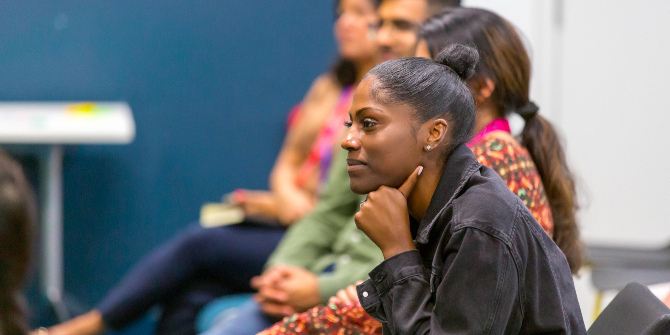
Women and men from ethnically and racially diverse backgrounds suffer from an ‘emotional tax’ in Canadian workplaces, according to research from Catalyst. “I don’t feel like I’m the insider,” said one respondent. In the study of men and women in Canada, 77 per cent of women and men of colour interviewed shared distressing stories of exclusion in the workplace. Despite this, the report overwhelmingly found they are committed and wish to succeed.
Many describe being on guard to protect against bias or discrimination because of their race, ethnicity, and/or gender as well as other factors, for example physical appearance, physical ability, age, sexual orientation, immigrant status, and religious beliefs. Over a third of men and women say they anticipate racial or ethnic bias (women at 40 per cent versus men at 38 per cent). Gender is also a top reason for being on guard (women at 38 per cent versus men at 14 per cent) to protect against gender bias. Almost a third (29 per cent) of women report being on guard against both racial and gender bias.
To protect themselves against bias or negative reactions, people from ethnically and racially diverse backgrounds may attempt to hide their true identities and unique selves. One method is ‘covering’ by downplaying aspects of their identity to fit in and lessen the risk of being treated differently because of their race.
For example, several workers described changing aspects of their appearance to stop them standing out or being judged based on racial stereotypes. They also spoke about how they moderated their behaviour including taking care with their ‘voice’ and language to put others at ease, even if this meant hiding their true feelings. “[When you speak up,] it has to be tempered,” said one black interviewee. “It has to be couched in a way that you have to sanitize it. Right? To make it look like you’re not being defensive or not being the angry black woman. So, you have to come across almost like you’re talking about somebody else.”
The study also found that being on guard against bias often links to a higher desire to leave the company, so despite having high aspirations to succeed many are considering taking their talent elsewhere. The study found that 50 to 69 per cent of black, East Asian, and South Asian professionals who are highly on guard against bias strongly considered quitting their jobs. “If you look at the overall organization, and my work environment, there’s not [a sense that the diversity I bring is a] value-add,” said one black woman. “I feel more like [the message is] ‘be grateful you’re here.’”
For many women from ethnically and racially diverse backgrounds the emotional tax also negatively affects their general health and well-being. The study found that 22 to 42 per cent of black, East Asian, and South Asian professionals who are highly on guard against bias also report a high rate of sleep problems.
The study, which followed a similar one in the US in 2018, reveals that the lesson for organisations is: everyone needs to feel safe speaking up in the workplace, and this includes not only women and people from non-dominant ethnically and racially diverse groups, but also the dominant group who need to feel able to stand up to any exclusionary behaviours, bias, or discrimination they may witness. Feeling safe is essential for innovation and team performance.
The best leaders can achieve great results by creating empowering, inclusive work environments, where people of colour can thrive, safe in the knowledge that their differences are valued and they feel supported.
♣♣♣
Notes:
- This blog post gives the views of its author, not the position of LSE Business Review or the London School of Economics.
- Featured image by Christina Morillo, via Pexels. OR image by gdsteam, under a CC-BY-2.0 licence
- Before commenting, please read our Comment Policy
 Allyson Zimmermann is the executive director for Europe, Middle East and Africa at Catalyst, a global nonprofit that works with CEOs and leading companies to build workplaces that work for women. Allyson is responsible for shaping the strategy for Catalyst’s continued growth and supporter engagement.
Allyson Zimmermann is the executive director for Europe, Middle East and Africa at Catalyst, a global nonprofit that works with CEOs and leading companies to build workplaces that work for women. Allyson is responsible for shaping the strategy for Catalyst’s continued growth and supporter engagement.





